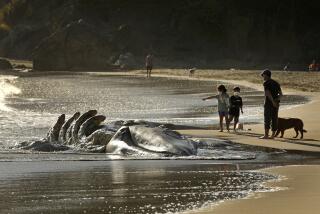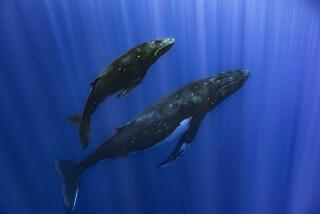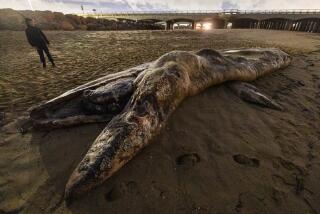Food FYI: Giant squid isn’t edible, in case you were wondering
When a 600-pound giant squid discovered in the depths of the sea off the coast of Japan hits the news, the first thing that comes to mind is ... calamari?
At least for some, including one participant in today’s live chat, Lunchtime With Mr. Gold, who posed the question to Times restaurant critic Jonathan Gold: “Would you eat the giant squid, if you could?” To which Gold responded: “I have had something like giant squid -- flash-grilled arcturus tentacle at Esca in Manhattan. But I draw the line at endangered or threatened species. There are a lot of other things in the world to eat.... The arcturus was delicious, by the way.”
Footage of the ocean’s most elusive animal was caught on video last summer -- at nearly 3,000 feet beneath the ocean’s surface -- but will be aired to the public for the first time Jan. 27 at 8 p.m. as part of the Discovery Channel’s show “Monster Squid: The Giant is Real.”
The giant squid is one of the ocean’s largest cephalopods, but until now, researchers had access only to dead giant squids found in the stomachs of sperm whales, in fishermen’s nets or floating on the surface of the ocean, according to an article in U.S. News & World Report.
An important discovery about the (eating) habits of giant squid: It doesn’t just float along waiting to bump into another sea creature, as previously believed, but is an active predator.
As for whether we can eat the giant squid, that’s a negative. It contains too much ammonia, scientists say.
ALSO:
Pig butchering course at Huntington Meats
The new La Brea Bakery is open, on La Brea
More to Read
Eat your way across L.A.
Get our weekly Tasting Notes newsletter for reviews, news and more.
You may occasionally receive promotional content from the Los Angeles Times.







